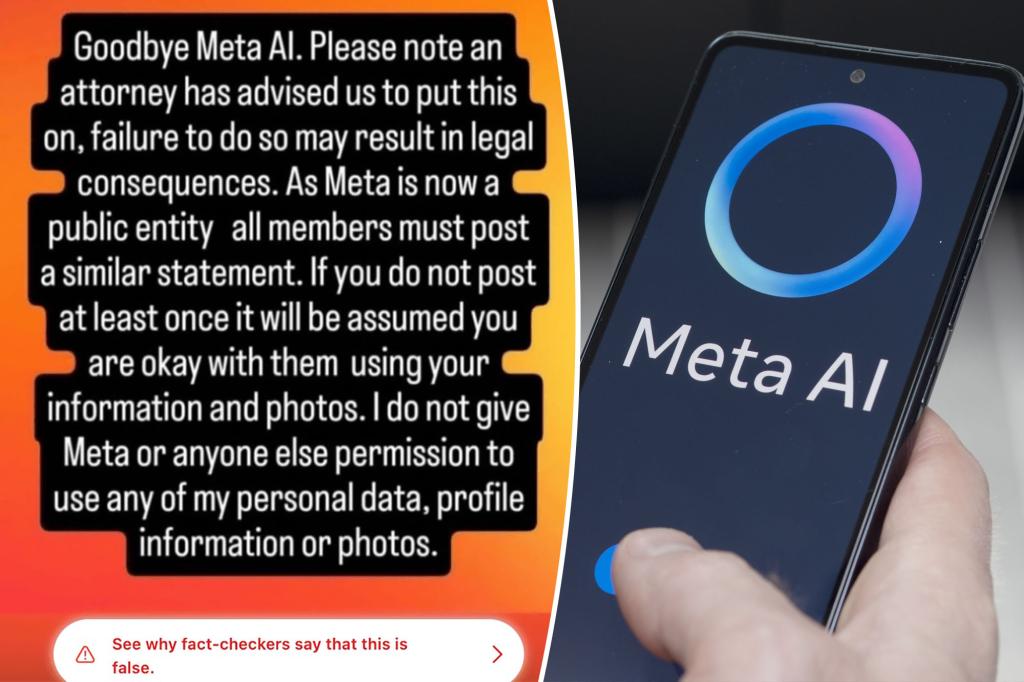Users on Instagram and Facebook have taken to the social media platforms to protest against the use of their data to train Meta AI. A statement called “Goodbye Meta AI” has been shared by over 600,000 people, including celebrities like Julianne Moore and Tom Brady. However, the message does not actually prevent Meta from using users’ data to train their AI software. Despite claims that failure to post the statement may result in legal consequences, it is just a viral hoax and does not provide any protection against data usage by Meta.
The block of text shared by users does not prevent Meta from scraping publicly available data for training purposes. Meta has clarified that sharing the story does not count as a valid form of objection, and the posts have been labeled as false information by third-party fact checkers. Meta launched its generative AI features a year ago, using only publicly shared posts on its platforms to train the system. Private messages are not used to train AI models, as confirmed by the company in a press release.
Drag queen and former “American Idol” contestant Ava Vox has warned users to stop sharing the “Goodbye Meta AI” message, as it will not protect their privacy. Vox explained that Meta has full permission to use data through agreed-upon terms and conditions, and malicious actors may target vulnerable users who share such posts. Users are encouraged to be cautious about internet safety and security to avoid becoming targets for hackers. Posting viral messages does not provide any real protection against data usage by tech companies.
Concerns about data privacy in artificial intelligence training have become more prominent in recent years. While users in Europe can opt out of Meta AI due to regional laws, users in the U.S. do not have the same protections. The best option for users in the U.S. is to set their profiles to private, as Meta does not currently offer an opt-out feature for American users. However, the company has built in-platform tools to allow users to delete their personal information from chats with Meta AI across its apps, offering some level of control over data privacy.
The issue of data privacy in AI training raises important questions about user control and consent. While viral messages may seem like a simple solution, they do not provide any real protection against data usage by tech companies like Meta. Users are encouraged to be vigilant about internet safety and security to avoid falling victim to hackers or other malicious actors. Meta’s use of publicly shared posts for AI training raises concerns about the extent to which user data is utilized without explicit consent, highlighting the need for stronger privacy protections in digital spaces.


